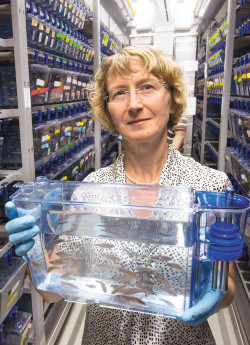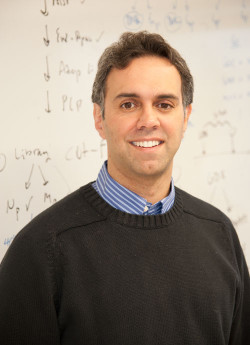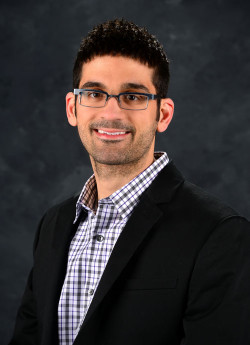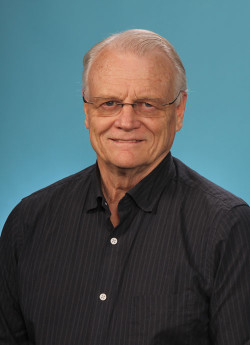Academy of Science-St. Louis honors researchers
Recipients of this year’s honors include Lilianna Solnica-Krezel, Robi D. Mitra, Gary J. Patti and Gary D. Stormo
 Robert Boston
Robert Boston Four researchers at Washington University in St. Louis are being honored as outstanding scientists by the Academy of Science-St. Louis.
University recipients of this year’s honors are faculty members Lilianna Solnica-Krezel, Robi D. Mitra, Gary J. Patti and Gary D. Stormo.
Each year, the academy seeks nominations of outstanding women and men in science, engineering and technology who are known worldwide for their scientific contributions to research, industry and quality of life. Those recognized also have a record of excellence in communicating with the public and/or mentoring colleagues.
The awards, which will be given at a dinner Thursday, April 7, represent recognition by St. Louis’ scientific community, the Academy’s Board of Trustees and members of the Academy of Science-St. Louis.

Lilianna Solnica-Krezel
Solnica-Krezel is the Alan A. and Edith L. Wolff Professor of Developmental Biology and head of the Department of Developmental Biology at the School of Medicine. She will receive the Academy of Science’s Fellows Award.
Solnica-Krezel’s research is focused on understanding what goes on inside embryos during the earliest stages of development. She is interested in uncovering the signals that determine the fate of cells in the early embryo and how those signals guide cells down paths that ultimately will help shape, for example, the brain, the blood or the heart.
To better study the development of vertebrates, she played an important role in a series of studies that established the zebrafish as a major model organism in science, alongside the long-studied fruit fly and mouse. Under Solnica-Krezel’s leadership, the School of Medicine has built one of the largest and most automated zebrafish facilities in the world.
Solnica-Krezel also serves as co-director of Washington University’s Center of Regenerative Medicine, which she helped found. The goal of the center is to develop new medical treatments that one day might allow doctors to regrow or replace a damaged heart or severed nerves, or restore lost vision or hearing.

Robi D. Mitra
Mitra is the Alvin Goldfarb Distinguished Professor of Computational Biology and an associate professor of genetics at the School of Medicine. Mitra will receive the academy’s James B. Eads Award.
Mitra studies gene expression using computational methods to uncover how master switches called transcription factors determine which genes are turned on and off, at what times and in what locations during the development of an organism. Mitra’s lab also is developing ways to study the epigenome, often described as the “software” that governs how the DNA “hardware” of a cell is processed and expressed.
Mitra also is a member of the Center for Genome Sciences and Systems Biology and an associate director of the university’s Genomics and Pathology Services initiative, which offers genetic testing for cancer and other diseases.
Mitra received a doctorate in electrical engineering in 2000 from the Massachusetts Institute of Technology. He then completed a postdoctoral fellowship at Harvard University before joining the Washington University faculty in 2003. Mitra has four patents that have been issued or are pending. He also has received a Whitaker Young Investigator Award and a Keck Foundation Research Award.

Gary J. Patti
Gary J. Patti, an associate professor of chemistry in Arts & Sciences, will receive the academy’s Innovation Award.
Patti has contributed to the development of foundational technologies in metabolomics, the systematic study of chemical fingerprints of the cellular processes that maintain organisms in a living state.
His pioneering work has enabled the first complete annotation of the tens of thousands of signals detected in metabolomic analysis of biological samples. Thousands of these signals were believed to correspond to unknown metabolites, but Patti’s work showed that only hundreds have not yet been identified.
Among his most impressive accomplishments has been the discovery of a pain-mediating metabolite, not previously known to occur naturally in biological systems. He has demonstrated that this metabolite is increased in patients suffering from chronic neuropathic pain and that symptoms can be lessened by inhibiting its production. Inhibitor drugs are being explored as potential therapeutics.
Patti also is noted for having developed interactive digital resources to help students learn biochemistry. Among his other honors, Patti has received the Alfred P. Sloan Fellowship, the Camille Dreyfus Teacher-Scholar Award, and the Pew Scholar Award in the Biomedical Sciences.

Gary D. Stormo
Stormo, the Joseph Erlanger Professor at the School of Medicine, will receive the academy’s George Engelmann Interdisciplinary Award. Stormo is a professor of genetics, of biomedical engineering and of computer science. His work at the university is centered in the Computer and Systems Biology, Molecular Genetics and Genomics, Human and Statistical Genetics, and Computational and Molecular Biophysics programs.
Stormo studies the mechanics of gene expression, especially how proteins interact directly with DNA and govern whether gene expression is dialed up or down.
He is a world leader in the field of bioinformatics, pioneering computational techniques now used to identify and analyze meaningful patterns in DNA sequences that indicate an important role for that section of the genome. He has made significant contributions to understand the structure and function of DNA and its close chemical cousin, RNA.
Stormo has served as executive editor of the journal Bioinformatics and was among the first to be appointed an honorary editor of the same journal. He has been a deputy editor-in-chief of PLOS Computational Biology, and he now serves on the editorial board of Current Protocols in Bioinformatics. He is a fellow of the American Medical Informatics Association and directs the Computational Biology Graduate Program at the School of Medicine.






